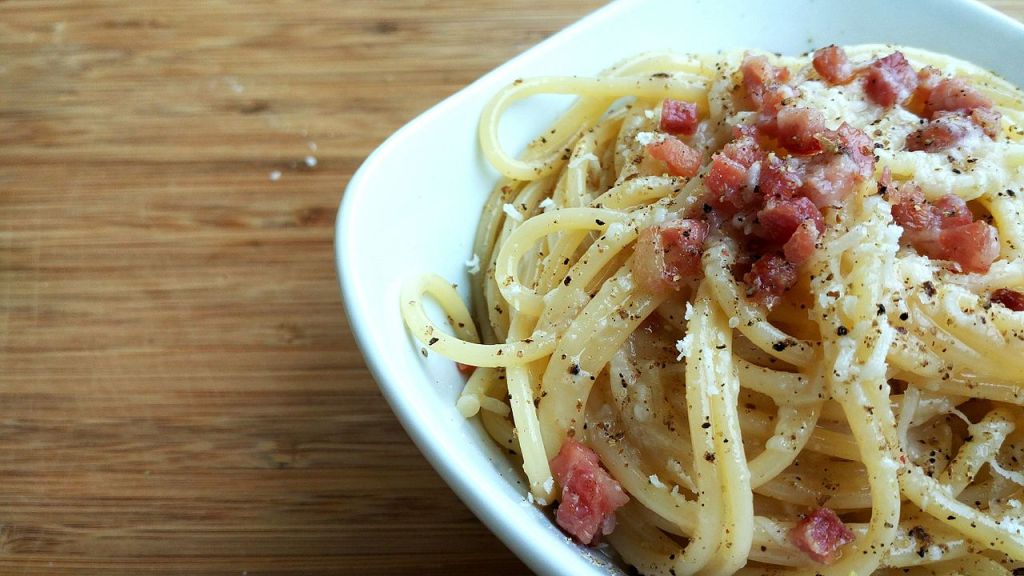
“The discussion about cream in the recipe has expanded and spread to several parts of the project. The now growing and very aggressive pro-cream faction is accusing the moderators of being controlled by a national conspiracy to boycott cream producers and for this reason wants them all to be removed.
How can the project deal with this situation? Does the project need help from outside?”
No, please, do not worry, this is not happening in a Wikimedia project, this was only one of the scenarios used to engage the Italian community during the local language consultation about the enforcement of the Universal Code of Conduct.
As part of the ongoing Universal Code of Conduct (UCoC) enforcement conversations, the Wikimedia Foundation reached out to a number of communities to hear their thoughts on potential enforcement mechanisms for the global policy. As a part of the team, I had the chance to interact closely with the Italian community on the subject.
When a community already has a quite complete framework of behavioural guidelines and reporting and conflict resolution pathways, asking its participants for ‘new’ ideas and suggestions on the subject is unlikely to bring out anything really innovative. For this reason, one of the ways to engage the Italian community during the local language consultation was a very elementary attempt to gamify the questions. Scenarios were invented around the fictitious project of a “Galactic Cookbook”, a multilingual collaborative cookbook where users write recipes and argue (a lot!) about ingredients…
The goal was also to involve new users who are not familiar with the existing guidelines and therefore less likely to participate in a conversation on this subject.
Did it work? Well… not like expected, I’d say. On one side there were some really interesting suggestions, some new users participated but the number of participants (a total of 10) was lower than expected.
Would I do it again? Probably I would not do it within the project, but I’d choose a way where people feel freer to express ideas and suggestions, without the “fear” of public judgement. Perhaps in the form of a survey or something similar. But I definitely think that this could be a useful way to engage people, and I think it is worth exploring how this could be used in future consultations, yes.
The Italian Wikipedia is currently the eighth version of Wikipedia in terms of the number of articles. There are 113 administrators and to be elected, candidates must have a minimum number of votes in favour, which is recalculated based on previous elections, and reach 80% of votes in favour. There is a yearly confirmation procedure. There is no arbitration committee.
Between 2007 and 2010, the Italian Wikipedia had to deal with some cumbersome users who had a very aggressive way of interacting. There were lots of complaints, some people abandoned the project, long and ferocious discussions took place, and lots of admins resigned as a form of protest. It was a really hard and unpleasant phase – but in the end, the decision was made. Wikipedia is first and foremost a collaborative project, and maintaining a constructive and pleasant climate is a priority to encourage participation, even at the cost of losing some good content brought by users who cannot fit in or who are not able to keep their behaviour under control.
One of the requirements to be an admin is the ability to deal calmly and constructively with everyone, some local guidelines explicitly require admins to intervene in conflict resolution issues and in the enforcement of behavioural guidelines.
The current local guidelines will need very few amendments to comply with UCoC so there were no protests or discussions around this new global policy. There were only very few questions about the process and the deadlines (and also some jokes before finding a suitable Italian name and an acronym for it).

But let’s go briefly back to our scenario, the discussion in the game was about cream in the carbonara (which is an absolute do not in Italy). There is some irony in the fact that on the Italian Wikipedia, the article [[Pasta alla carbonara]] is periodically at the centre of some edit war about ingredients or about the origins of the dish. At the end of the day, the scenario was not so distant at all from what could happen without guidelines, contributors willing to follow them and contributors ready to enforce them…
UCoC Facilitators Blog Posts
- Self-governance of older Wikimedia projects – the curious case of Polish Wikipedia
- Consulting the UCoC Enforcement Within an Intercultural Wikimedia Ecosystem
- Lessons from the recent influx of teenagers in the Korean Community: How do we deal with them as active contributors?
- Facilitating Wikimedia Communities in West Africa for the UCoC

Can you help us translate this article?
In order for this article to reach as many people as possible we would like your help. Can you translate this article to get the message out?
Start translation